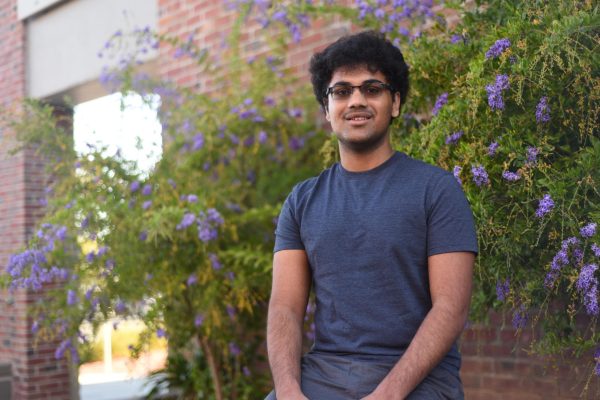The 2024 Paris Olympics were politically controversial — Russian and Belarusian athletes were banned from participating due to their countries’ involvement in the Russia-Ukraine war, and a French and Muslim athlete, Sounkamba Sylla, was barred from attending the opening ceremony for wearing a hijab. France’s Minister of Sport prohibited any athletes representing France from displaying any type of religious symbol, in an attempt to separate church from state.
For sophomore Maximillian Shaykin, watching the Olympic Games helped him feel connected to both his American nationality and Russian ethnicity. Even so, in the 2024 Paris Olympics, where Russian athletes were not allowed, he felt no representation in the games. Though individual athletes from Russia and Belarus were still allowed to participate by playing as Individual Neutral Athletes (AIN), Shaykin believes that the International Olympic Committee’s decision to ban them from competing under their respective countries contradicts the spirit that drives the Olympics in the first place.
“A lot of athletes that go to the Olympics really care about representing their countries,” Shaykin said. “That’s one of the main points of the Olympics, and cutting out a huge group of people and their nationalities, even when those athletes are not related to any political ideas, is not fair.”
The focus on representation extends beyond nationality for junior Ali Malik, who argues that removing religious expression cuts out an important part of an athlete’s identity. He believes that the suppression of religion not only diminishes an athlete’s personal identity but also opposes the Olympics’ main goal of inclusivity.
“I think separating religion from sports, or separating any type of culture from sports can be very damaging to one’s identity,” Malik said. “You should be able to represent whatever country that you are affiliated with along with your religion and the religion should not have anything to do with the country. I don’t think that the Olympics or any countries should be dictating rules against somebody’s political beliefs.”
Shaykin believes that after the screening process that athletes have to go through to make sure they are not directly related or involved in any political issues, they should be allowed to represent their country. Although he believes it is difficult to separate an athlete from any controversial political context of their country, he thinks there are still other ways of addressing those issues without excluding athletes. Shaykin specifically notes that it would prove difficult for athletes to influence large-scale political agendas in any significant way using just their opinions, as they are athletes, not politicians.
“I don’t think it’s fair to ban athletes because I don’t think they have much influence on pro-war movement,” Shaykin said. “Especially with politics, you can easily separate yourself from that agenda because some people are just not interested in politics, even though they want to support their country.”
According to a 2023 report from the U.S. Department of State, the French law on international religious freedom gives authorities the power to monitor and dissolve religious organizations and groups they determine to promote ideas contrary to French values, such as individual freedoms and secularism. Along with giving authorities power over religious organizations, the report states the law prohibits the wearing of conspicuous religious symbols in public spaces such as schools.
U.S. History and Advance Placement United States Government and Politics teacher Benjamin Recktenwald confirms that France has very tight control over religious expression in its country. He states that France tries to spin the strict separation of state and religion in a more positive way, but he believes that most religious items worn are not inherently bad or imposed on others.
“France has fairly rigid policies in their government-run schools about displaying any kind of religion,” Recktenwald said. “You can’t wear a crucifix, you can’t wear a hijab. That’s their take on ‘freedom of religion’ – basically saying that it’s a religion-free zone. Whereas in the U.S., you can wear whatever, as long as it’s not offensive or dangerous.”
Recktenwald says while France tries to twist its laws on the lack of religious expression as a way to promote religious neutrality, it fails due to the extremity of its policies. Malik believes that this type of treatment is common around the world for the Muslim community.
“It’s something that’s not really new for the Muslim community,” Malik said. “A lot of Western countries have demonized the hijab and associated it with terrorism or extremism, despite the fact that these people are wearing it out of their choice. What these governments are doing in the name of democracy and secularism are suppressing and restricting that choice, which is very undemocratic.”
Ultimately, Recktenwald says that what France is doing is the opposite of what they should be trying to do with its athletes. He points out that the Paris Olympics might be trying too hard to get rid of religion, which can be counterproductive to its goal of religious freedom.
“That’s not really freedom of religion, it’s freedom from religion,” Recktenwald said. “I know they’re trying to prevent people from getting engaged in any kind of religious tensions, but I think France is wrong for doing that.”
Malik says that France has a different approach to freedom compared to Western countries, like the U.S. He notes that the U.S. values freedom from authority or monarchy, but France values freedom from religion because of its different cultural roots, which is why the country is so adamant on secularism.
“I also think there is a distinction to be made,” Malik said. “Separating church from state in terms of policy I think is fair, because what you’re doing is you’re saying, ‘We’re gonna make our laws not based on a religious book, but something that is inclusive of all people.’ When you’re separating religion from state and saying, ‘We’re going to ban people from expressing their religion in public,’ I think that’s when you’re conflating two different things. One when it comes to policy, and one when it comes to individuals.”












